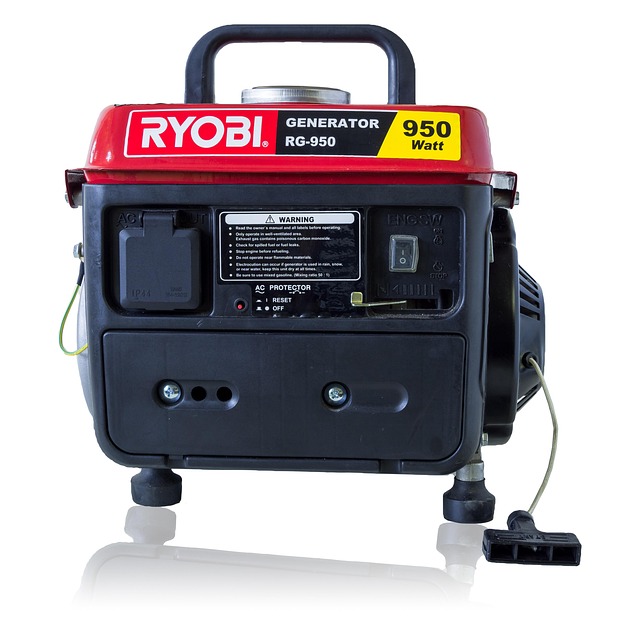Powering Through the Darkness: Everything You Need to Know About Home Generators
Unexpected power outages can bring daily life to a halt, plunging homes into darkness and disrupting essential routines. From keeping food fresh to powering medical devices and maintaining comfort, a reliable backup power source is no longer a luxury but a crucial component of home preparedness. This article will explore everything you need to know about emergency home generators, revealing how these systems can provide continuous power, protect your essential appliances, and offer unparalleled peace of mind when the unexpected happens. Get ready to understand how you can keep your lights on and your life running smoothly, no matter the weather or grid disruptions.

How Do Emergency Home Generators Work?
Emergency home generators are designed to kick in automatically when the main power supply fails. These systems are typically connected to your home’s electrical panel and natural gas line or propane tank. When a power outage occurs, the generator’s automatic transfer switch detects the loss of electricity and signals the generator to start. Within seconds, the generator begins producing electricity, powering your home’s essential circuits and appliances. This seamless transition ensures that your home remains functional during blackouts, protecting your family’s comfort and safety.
Types of Generators: Which One is Right for Your Home?
Choosing the right generator for your home depends on your specific needs and budget. There are three main types of home generators:
-
Portable Generators: These are the most affordable option and can be moved around as needed. They’re ideal for powering essential appliances during short outages but require manual setup and refueling.
-
Standby Generators: Also known as whole-house generators, these permanent installations automatically kick in during power failures. They offer the most comprehensive coverage and convenience but come at a higher cost.
-
Inverter Generators: These advanced portable generators provide cleaner power, making them suitable for sensitive electronics. They’re more fuel-efficient and quieter than traditional portable generators but are typically more expensive.
Consider factors such as your power needs, frequency of outages, and budget when selecting the right type for your home.
Key Features to Look for in a Home Generator
When shopping for a home generator, several key features can make a significant difference in performance and convenience:
-
Automatic Transfer Switch: This feature allows the generator to start automatically when power is lost, ensuring minimal downtime.
-
Fuel Type Compatibility: Look for generators that can run on readily available fuels like natural gas, propane, or gasoline.
-
Power Output: Ensure the generator can handle your essential electrical loads. A professional assessment can help determine the right size for your needs.
-
Remote Monitoring: Some modern generators offer smartphone apps or web interfaces for remote monitoring and control.
-
Noise Reduction Technology: Especially important for residential areas, look for generators designed to operate quietly.
-
Weather-Resistant Enclosure: For outdoor installation, a durable, weather-resistant housing is crucial for longevity and performance.
Cost Considerations for Home Generators
The cost of a home generator can vary significantly based on type, capacity, and features. Here’s a general breakdown of what you can expect:
| Generator Type | Capacity Range | Average Cost Range |
|---|---|---|
| Portable | 3,000 - 8,500 watts | $400 - $1,500 |
| Inverter | 1,600 - 7,000 watts | $500 - $4,000 |
| Standby | 7,000 - 150,000 watts | $2,000 - $20,000+ |
Prices, rates, or cost estimates mentioned in this article are based on the latest available information but may change over time. Independent research is advised before making financial decisions.
Keep in mind that installation costs for standby generators can add several thousand dollars to the initial investment. However, many homeowners find the peace of mind and protection of their property worth the expense, especially in areas prone to frequent or extended power outages.
Fueling Your Generator: Options and Storage
Proper fuel management is crucial for ensuring your generator is ready when you need it most. The most common fuel options include:
-
Gasoline: Widely available but has a short shelf life and can be challenging to store safely in large quantities.
-
Propane: Can be stored indefinitely and burns cleaner than gasoline, but may have lower energy density.
-
Natural Gas: Provides a continuous fuel supply through existing gas lines, eliminating storage concerns but requiring professional installation.
-
Diesel: Offers a long shelf life and high energy density but can be more expensive and may have stricter storage requirements.
For portable generators, it’s essential to store fuel safely and rotate your supply regularly. Standby generators connected to natural gas lines or large propane tanks offer the advantage of extended run times without manual refueling.
Maintenance: Keeping Your Generator Ready for Action
Regular maintenance is key to ensuring your generator performs reliably when you need it most. Here are some essential maintenance tasks:
-
Perform regular oil changes as recommended by the manufacturer.
-
Check and replace air filters periodically.
-
Test the generator monthly to ensure it starts and runs properly.
-
Inspect fuel lines and connections for leaks or damage.
-
Keep the generator clean and free from debris.
-
For standby generators, schedule annual professional inspections and servicing.
By following these maintenance guidelines, you can significantly extend the life of your generator and ensure it’s always ready to power your home through any outage.
In conclusion, home generators offer an invaluable safety net against power outages, protecting your family’s comfort, safety, and peace of mind. By understanding the types available, key features to look for, and important considerations like cost and maintenance, you can make an informed decision on the best generator solution for your home. Whether you opt for a portable unit for occasional use or invest in a whole-house standby system, having a reliable backup power source will ensure you’re prepared for whatever Mother Nature or the power grid might throw your way.




